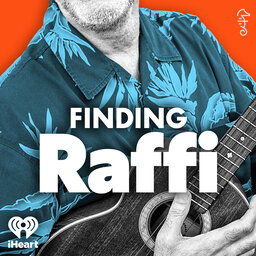Singable Songs For The Very Young
How a musical experiment became the most iconic kids’ album of all time.
Guests in this episode:
- Ken Whiteley, award-winning multi-instrumentalist and producer
- Bert Simpson, senior associate at Troubadour Records
- Dr. Patricia Shehan Campbell, University of Washington School of Music
Learn more about your ad-choices at https://www.iheartpodcastnetwork.com
 Finding Raffi
Finding Raffi


